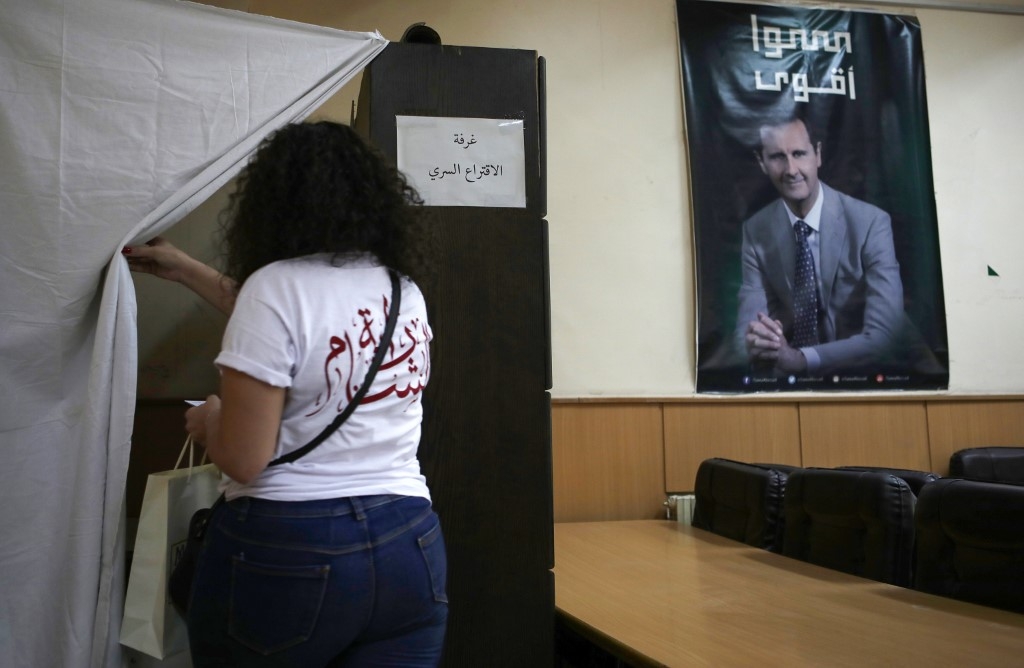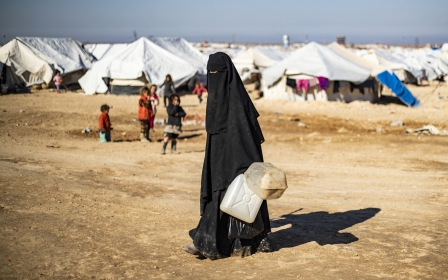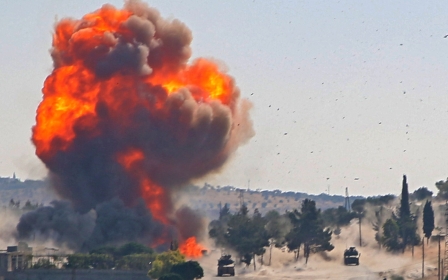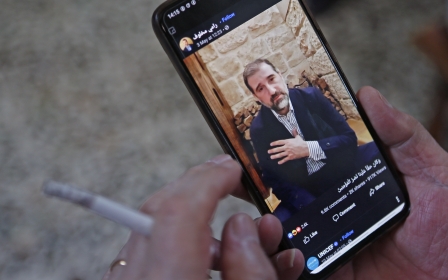Syria: Parliamentary polls held with economy in freefall

Syrians in government-held areas of the country voted on Sunday in parliamentary elections with candidates made up of loyalists to President Bashar al-Assad and militiamen.
The polls come as the government is struggling to manage a grave economic crisis, with corruption, mismanagement, coronavirus, inter-Assad family struggles, new US sanctions and the Lebanese economy's meltdown nextdoor all playing a part.
Imad Khamis, who Assad removed as prime minister last month after four years in office, was seen voting in his first public appearance since his sacking. It had been speculated he was under house arrest.
Translation: Denying all the exaggerated news (based on verified sources) which were published lately by Syrian and Arab media that Imad Khamis was arrested, tortured, killed, banned from travelling, and stole $400m.. The former prime minister of Bashar al-Assad’s government participated today in the theatre show of the parliamentary election, while he is smiling, happy and God’s eye protects him.
New MEE newsletter: Jerusalem Dispatch
Sign up to get the latest insights and analysis on Israel-Palestine, alongside Turkey Unpacked and other MEE newsletters
Meanwhile, Assad and his wife Asma, both wearing coronavirus masks, voted in Damascus early on Sunday, at the Ministry of Presidential Affairs.
Syria's parliament of 250 MPs is effectively powerless, with Assad himself retaining almost all the levers of power in the country.
More than 7,000 polling stations opened across government-held parts of Syria, including for the first time in former opposition strongholds, in the third election since the war began nine years ago.
Millions of Syrians living abroad or in rebel-held areas after fleeing a war that has killed around half a million people are not, however, eligible to vote.
Candidates were reportedly handpicked by Assad's Baath party, the Iranian Revolutionary Guard and a host of pro-government militias.
Before polls opened, one person was killed and another wounded in a blast in Damascus, state news agency SANA said. The cause of the explosion was not immediately clear.
The elections have twice been postponed since April due to the coronavirus pandemic and come at a time when most Syrians are worried about the soaring cost of living.
Many candidates are running on programmes pledging to tackle inflation and improve infrastructure ravaged by the conflict.
For the first time in nine years, state-sponsored voting took place in the Eastern Ghouta suburbs of Damascus, southern Daraa province and parts of north Hama and south Idlib, all of which were recaptured by Assad from rebel forces in recent years.
However, many of those areas previously witnessed free elections for local governance under opposition control, particularly early in the conflict before hard line rebel factions took control of opposition-held territory.
Hunger crisis
Syrians under government rule are struggling.
Food prices in Syria have shot up by approximately 200 percent in the past year and now stand at 20 times their pre-war levels, according to the World Food Programme.
In a country where more than 80 percent of people already live in poverty, the UN food agency has warned that Syrians are now facing an "unprecedented hunger crisis".
The official number of coronavirus cases in government-held parts of the country remains low, at fewer than 500 cases, with at least 25 deaths.
But a recent increase in cases and reports that healthcare workers in rebel-held Idlib province have contracted Covid-19 have increased doubts about the official figures.
After two judges tested positive on 13 July, the government issued a rare warning emphasising the importance of social distancing and wearing masks.
Middle East Eye delivers independent and unrivalled coverage and analysis of the Middle East, North Africa and beyond. To learn more about republishing this content and the associated fees, please fill out this form. More about MEE can be found here.




